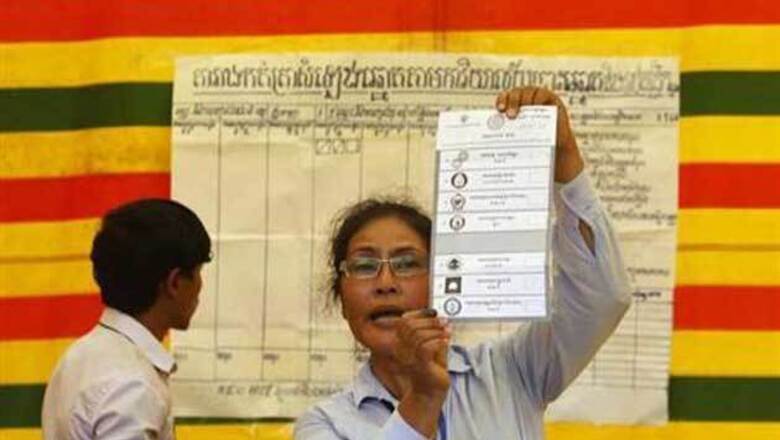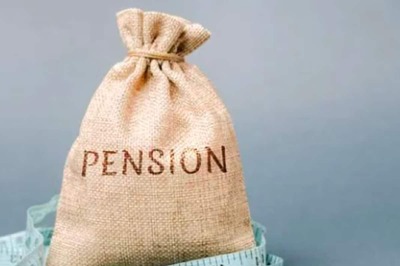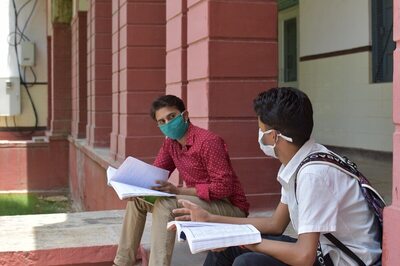
views
Cambodia's ruling party won Sunday's general election but with a much-reduced majority, according to the government, a result that will be seen as a setback for authoritarian leader Hun Sen, one of the world's longest-serving prime ministers.
Khieu Kanharith, government spokesman and information minister, said on his Facebook page the Cambodian People's Party (CPP) won 68 seats in parliament to the opposition's 55, adding that was the final count.
The National Election Committee (NEC) gave a list of results from each polling station but no tally for parliamentary seats.
Backed by a compliant media and with superior resources, the CPP was confident of victory, but analysts had predicted a reduction in its majority after the merger of two main opposition parties plus the return from self-imposed exile of popular long-time opposition leader Sam Rainsy.
While not formally conceding defeat for his Cambodia National Rescue Party (CNRP), Sam Rainsy was conciliatory and called for calm after what were significant gains for the party.
"We want to thank all Cambodian people ... regardless of their political affiliation, Cambodians who support all political parties, for their dignified participation in this election, for their contribution to make democracy move forward," he told a news briefing.
The CPP had 90 of the 123 seats in the outgoing parliament and the parties that united to form the CNRP had just 29.
Sam Rainsy appealed to his youthful supporters not to cause any trouble. "We call for peace and reconciliation," he said.
Military police blocked off a road leading to the home of Hun Sen, who has been in power for 28 years, and one going to the offices of the CPP and the NEC.
Trucks carrying soldiers were seen going into the city but by late evening the streets were calm.
Earlier, in a highly charged atmosphere, an angry crowd had set fire to two police cars outside a polling station, a Reuters photographer said.
However, voting, like the campaign itself, was for the most part peaceful despite anger at alleged electoral fraud.
Sam Rainsy's party claimed electoral lists were manipulated to give the CPP more votes and complained about the disruption of meetings and campaigning by the security forces for Hun Sen.
"The partisanship of the military and police has created an intimidating atmosphere for voters in many parts of the country," US-based Human Rights Watch said in a statement ahead of the poll.
The United Nations organised an election in 1993 that put Cambodia on a rocky path towards stability after decades of turmoil, including the 1975-79 "Killing Fields" rule of the communist Khmer Rouge.
Under Hun Sen, a former junior commander in the Khmer Rouge who broke away during their rule, Cambodia has been transformed into one of Southeast Asia's fastest-growing economies, helped by garment exports plus aid money and investment from China.
But economic growth has been accompanied by a rise in social tension over poor factory conditions and rural land rights in a country of 14 million where a third of the people live on less than 65 US cents a day.
Before a royal pardon in July 2013, Sam Rainsy had faced a jail sentence handed down in 2010 for spreading disinformation and falsifying maps to contest a new border agreed with Vietnam, charges he called politically motivated.
He returned too late to run in the election or even to vote, and the electoral authorities rejected his request to do so.
But the charismatic former finance minister had attracted large crowds to rallies, appealing to younger voters with no memory of the turmoil before Hun Sen helped restore stability.
At one polling station set up at a pagoda in Phnom Penh, 29-year-old Khat Sreynit said she wanted a better country and jobs for university graduates. "And also that people have a living wage," she said, before rushing into the crowd to get a glimpse of Sam Rainsy, who had turned up there.
A 70-year-old voter clutching an ID card declined to give her name but said: "This election is important for the country. I have always voted before, since 1993, I voted for living conditions and the country." She paid little attention to Sam Rainsy's arrival.


















Comments
0 comment